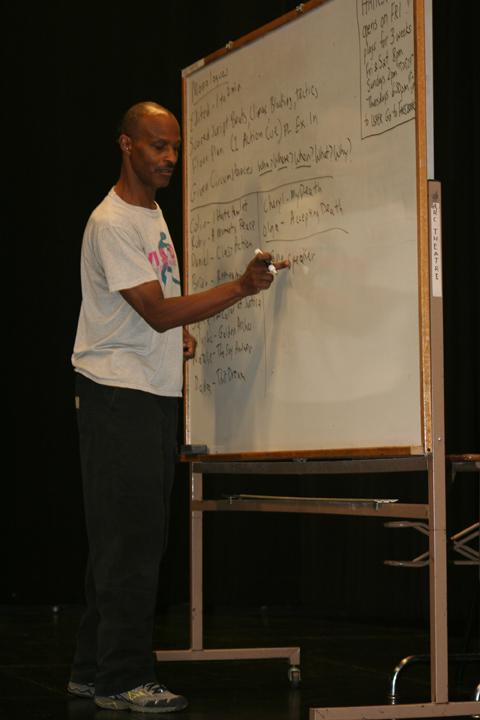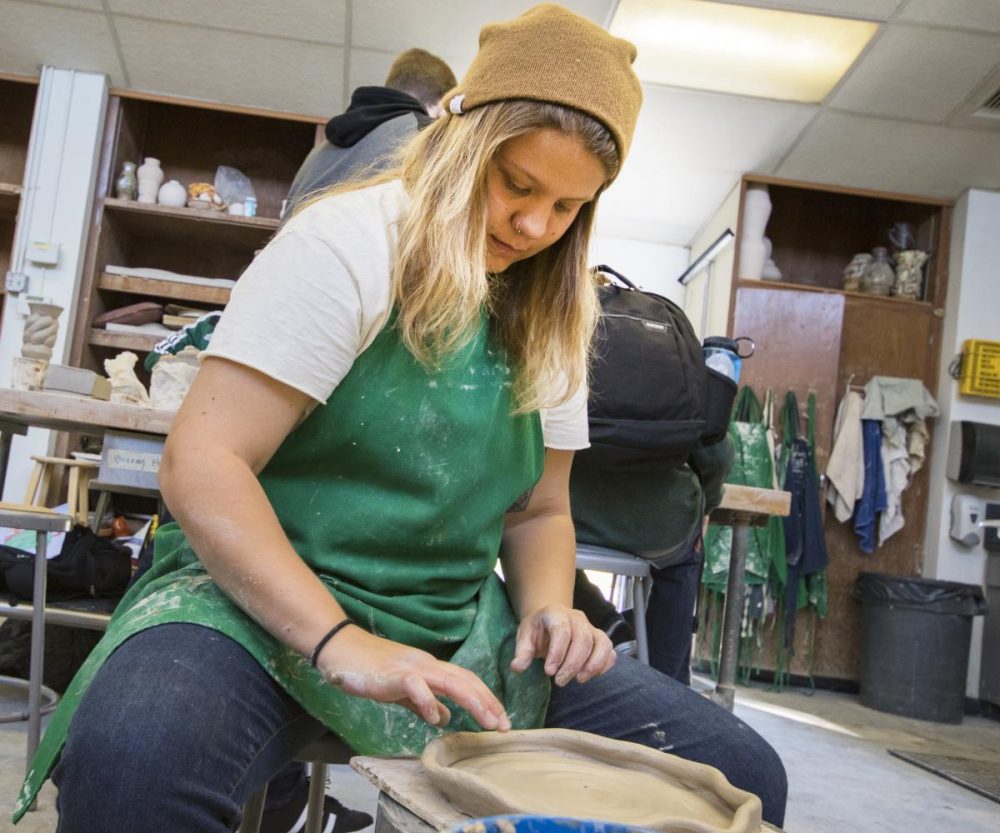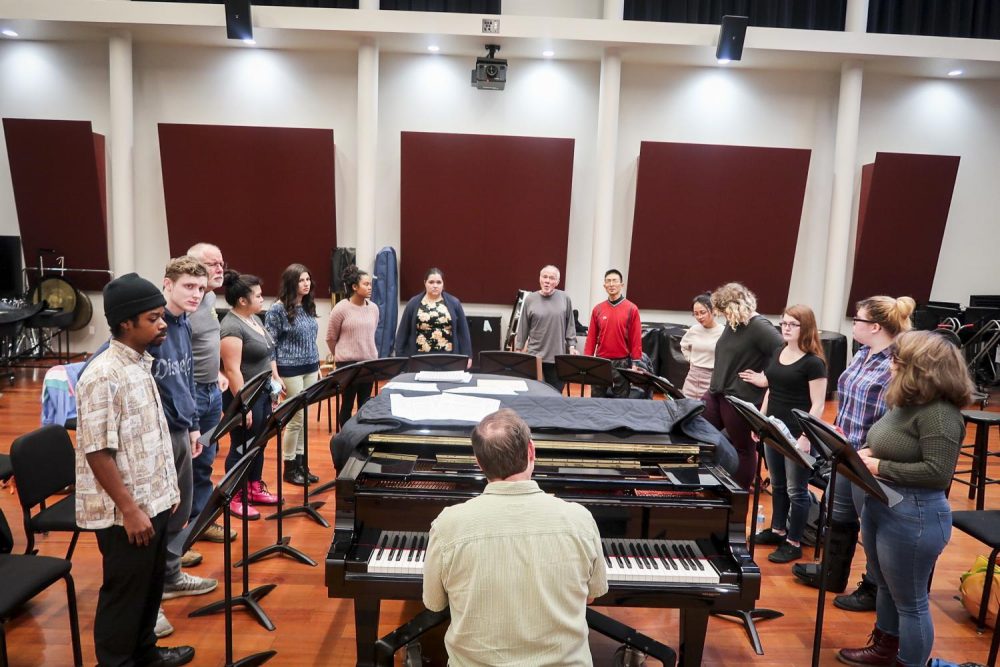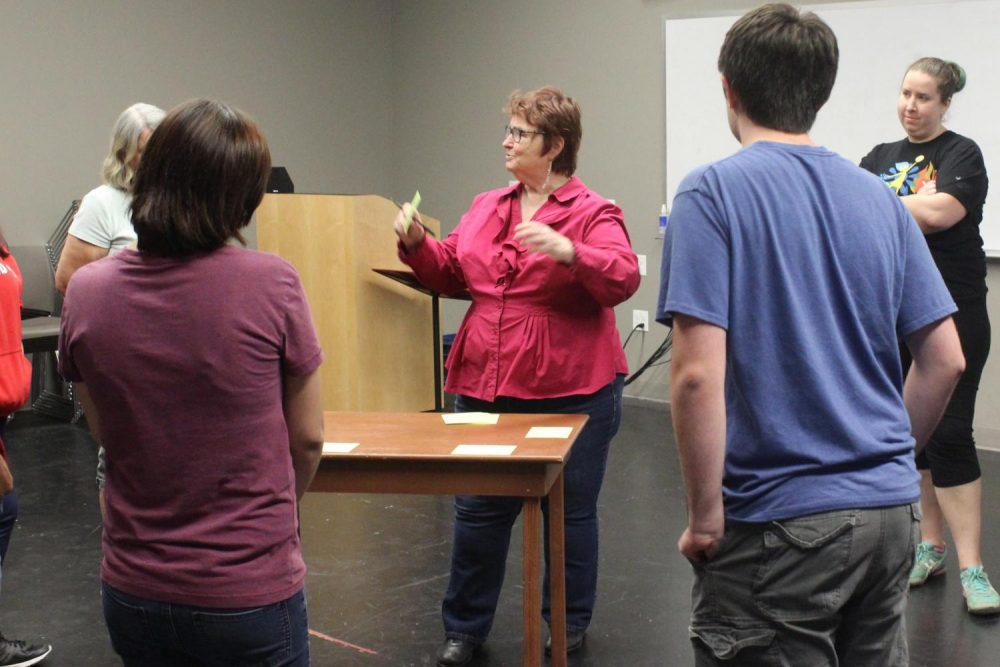Acting goes beyond just saying your lines according to the script. It is about making the human connection with your audience, and making your statement be felt, heard, and understood.
In Theater Arts 350:Theory and Techniques of Acting I,1:30 p.m. – 2:50 p.m. Tuesdays & Thursdays, professor Sam Williams shows students the importance of the different factors and theories involved in acting, and allows students the opportunity to demonstrate to their peers what they have learned.
The course shows students different acting techniques in different contexts, stretching from classical theater acting to commercial acting.
The class is a very active one, as Williams begins each lesson with the students in a circle to stretch. He then has each student perform an assignment in front of the class.
American River College undecided student Daniel Freihofer says the class is “good for you to get out of your shell if you are shy, and helps build self-confidence as well.”
Professor Williams has been teaching this course since 1998, and does not see himself stopping any time soon. “God has blessed me big time to have this fabulous job,” he says, “because I have made a living experiencing my passion. So I would say (I will teach) indefinitely.”
His students also highlight professor Williams’ passion for theater. “Professor Williams is a great teacher,” explains Freihofer. “I really like his approach and he is not boring at all. He keeps it exciting and keeps everyone engaged.”
There are many different kinds of students that attend this class, including many non-theater majors. Rosa Garcia, a chemical dependency/human services major, suggest that anybody can take this class.
Professor Williams also stresses the importance of communication to his class.
“This class is about communication. It’s about listening to people. It’s about studying human nature, so I feel everybody would benefit [from this class].”
This class is recommended to anyone who is looking to build personal skills and wants to enjoy a class while fulfilling credit requirements.
 “Professor Williams is a great teacher. I really like his approach and he is not boring at all, he keeps it exciting and everyone engaged.” -Daniel Freihofer
“Professor Williams is a great teacher. I really like his approach and he is not boring at all, he keeps it exciting and everyone engaged.” -Daniel Freihofer
“This class is about communication. It’s about listening to people. It’s about studying human nature, so I feel everybody would benefit [from this class].” -Sam Williams
![]()














